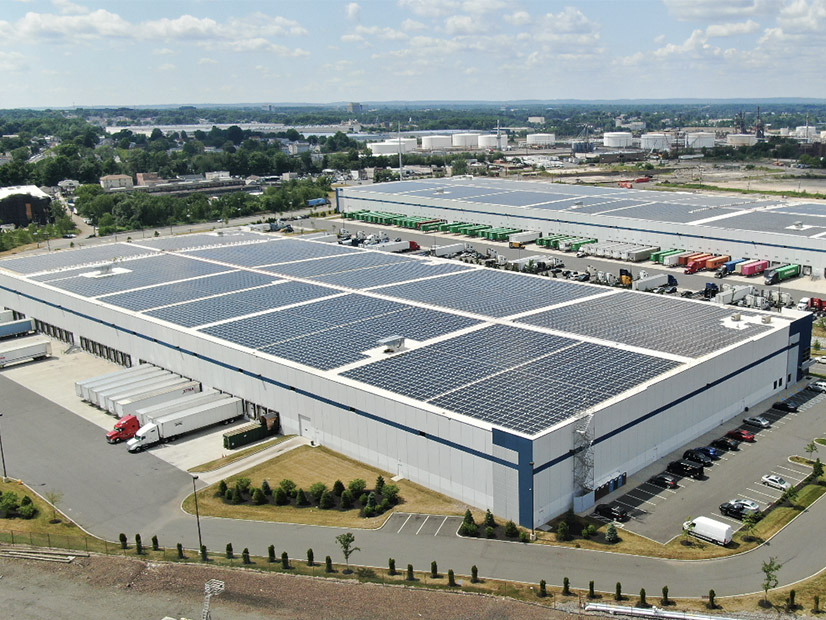The New Jersey Economic Development Authority on April 15 approved the establishment of a green bank to help the state reach its clean energy goals by investing private and public money in financial instruments supporting clean energy projects.
The New Jersey Green Bank (NJGB) will make investments through “debt, credit enhancements and other financial vehicles,” the EDA said in a statement. It “will be dedicated to investing in projects, technologies and companies that align with the state’s climate goals, including in areas such as zero-emission transportation, building decarbonization and resiliency, and clean energy generation and storage.”
“The NJGB will also look to facilitate the development of climate and clean energy capital markets in the state through forms of financial support, such as warehousing and securitization, that address underdeveloped or nonexistent capital markets for these investments,” the agency said.
EDA CEO Tim Sullivan called the bank a “pivotal step in the state’s continued push to meet the ongoing challenges of climate change.” New Jersey Gov. Phil Murphy (D) has set a goal for the state to reach 100% clean energy by 2035.
“The NJGB will inject capital into New Jersey’s clean energy economy and support green businesses and good-paying jobs in the field,” Sullivan said. “Additionally, the investments made by the NJGB will pave the way for a cleaner and healthier environment for our residents and future generations.”
Projects the bank supports will have to be new, rather than existing projects seeking refinancing, and must lead to reduced greenhouse gas emissions or other co-pollutants, according to the EDA. They could include solar power, onshore and offshore wind, all-electric heat pumps, geothermal and battery storage, the agency said.
New Jersey follows several states that have created similar banks, among them Massachusetts, which created its Community Climate Bank in 2023. That bank started with $50 million in state funds and an initial focus on affordable housing, according to its website. Connecticut, Colorado and California also have green banks, according to the Coalition for Green Capital, which assists green banks in securing investments. The EDA’s proposal, issued last year, listed 28 other entities, mainly states, that have created green banks.
New York’s Green Bank, a division of the New York State Energy Research and Development Authority, says it has committed more than $2 billion to finance clean energy and sustainable infrastructure projects over its 10-year history. The typical investment is $10 million to $15 million, according to the agency, which says it has an annual investment target of $225 million.
Murphy allocated $40 million to the Green Fund in his 2024 budget, released last year. The fund “could attract up to $280 million in private capital to advance projects to advance the state’s new and bold environmental goals,” the budget book said. The bank is a subawardee in an application by the Coalition of Green Capital for funding from EPA’s National Clean Investment Fund (NCIF).
In addition, the green bank could receive at least $100 million from the NCIF, $202 million from the Coalition for Green Capital and $350 million from Ecority, a clean energy financing nonprofit, according to a memorandum on the Green Bank proposal by Sullivan.
New Jersey has for several years sought to launch such a bank. The state Energy Master Plan, released in 2019, outlined the concept and benefits of such a bank, saying it would help address an existing financing gap in customer segments: “those who lack access to the capital necessary to fund energy efficiency projects on their own but earn too much to qualify for low-income incentive programs.”

